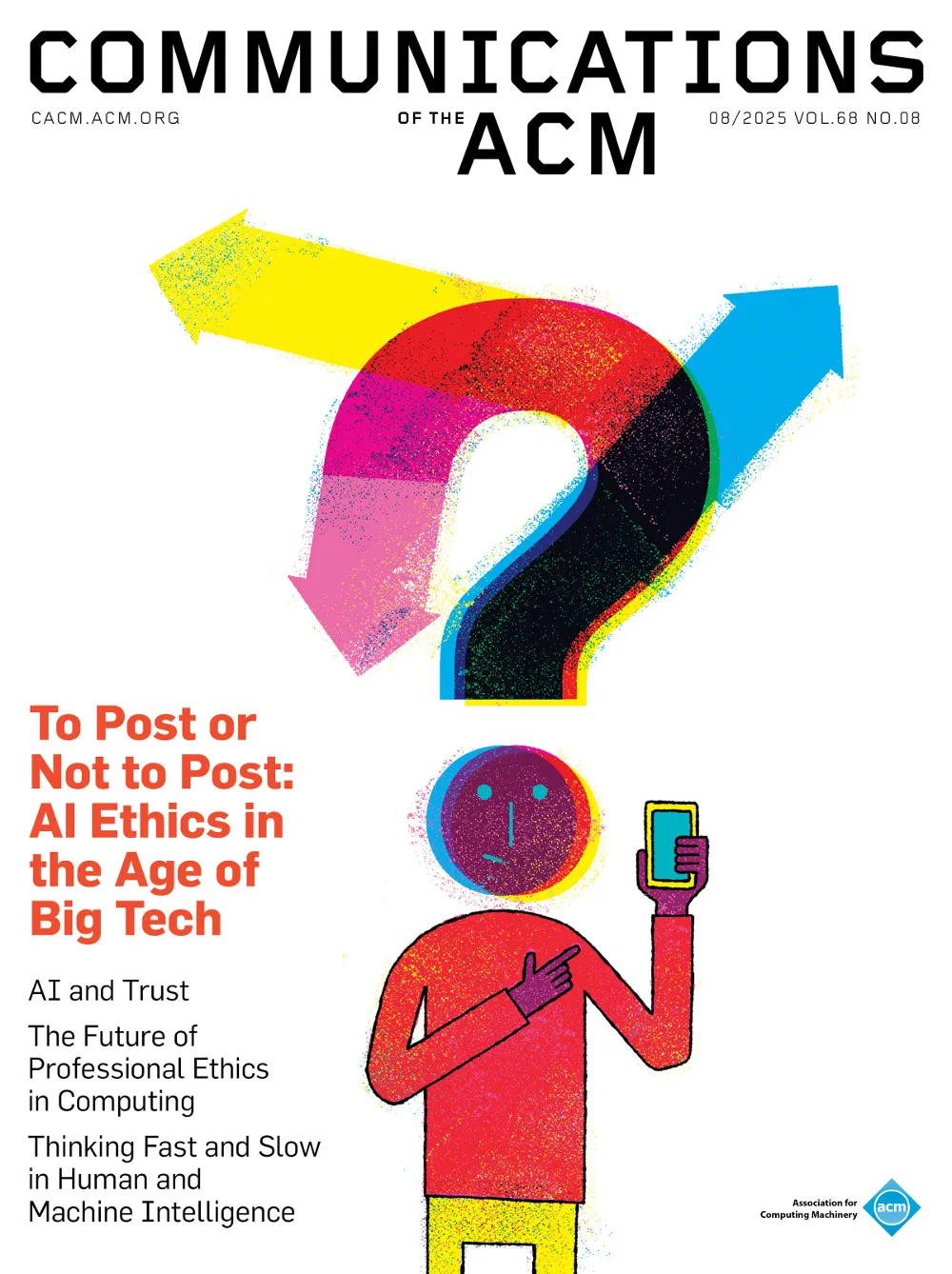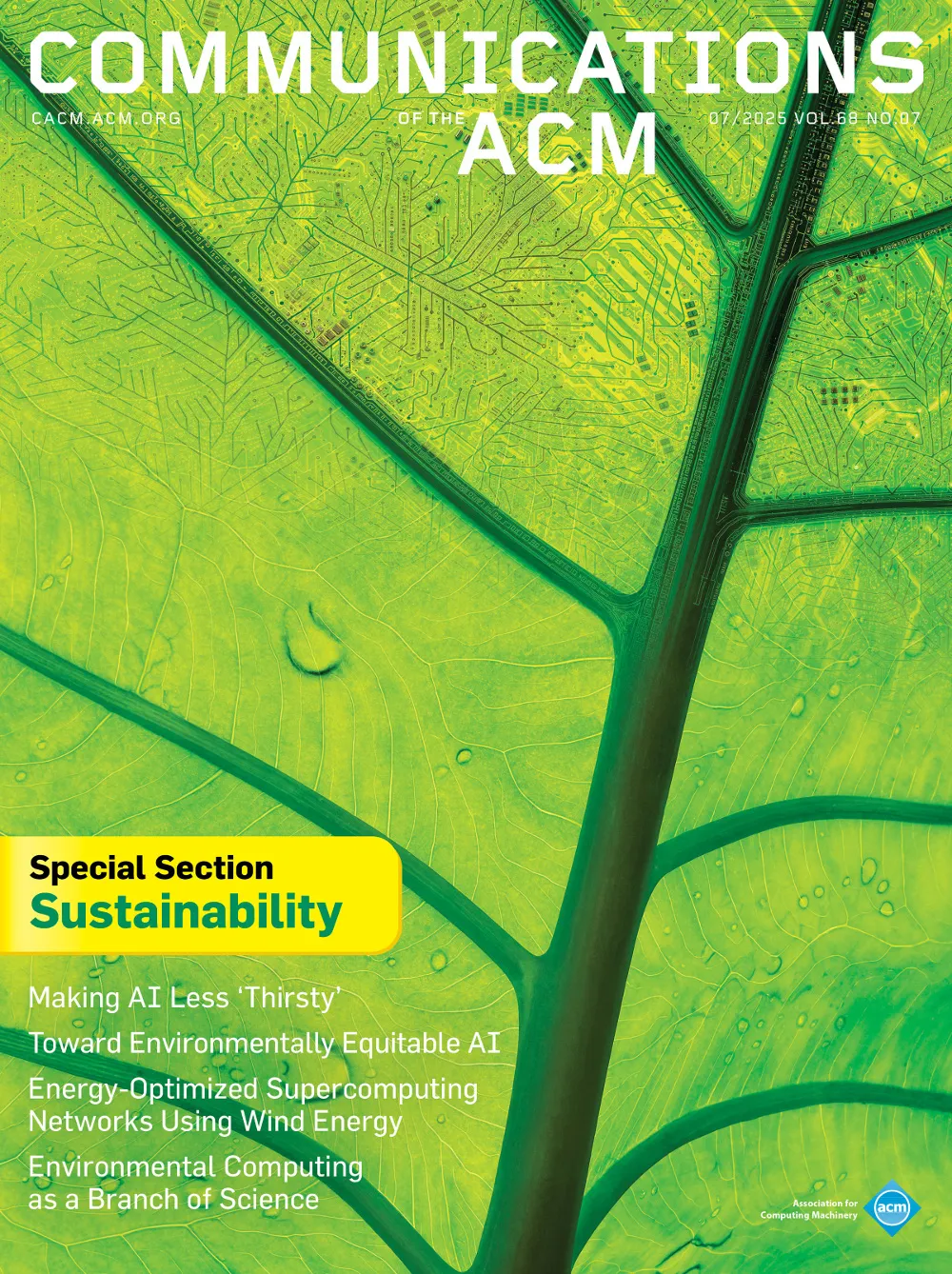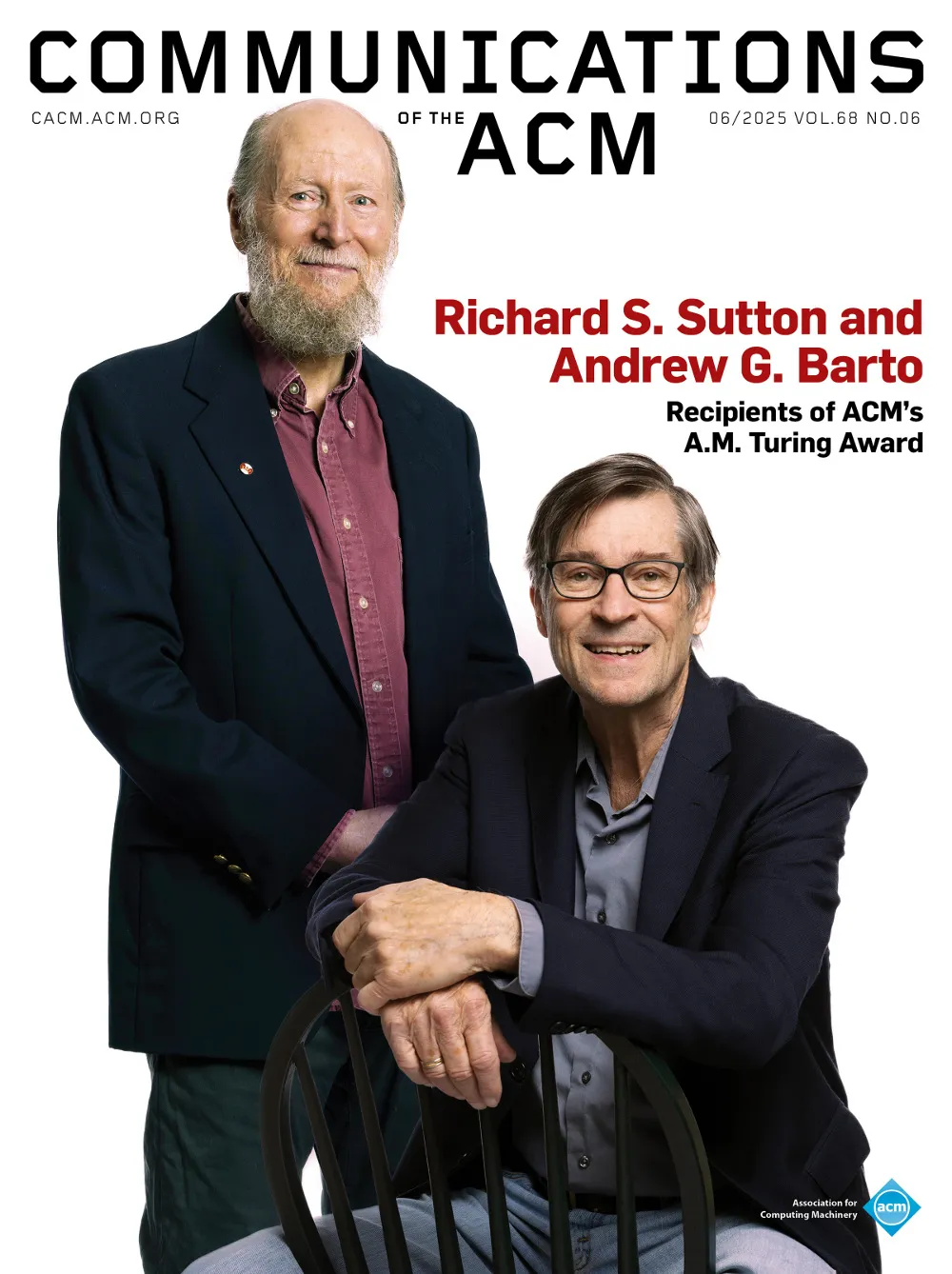March 2002 - Vol. 45 No. 3

Features
Opinion Editorial pointers
The state of robotic technology has surpassed sci-fi imagination in many respects, moving beyond technoserf status to more human-like agents. Today’s robots can operate in autonomous and intelligent ways. We find them collecting samples on the surface of Mars or the floor of the deepest ocean. We find them on the battlefields of war or […]
News News track
A proposal to increase high-tech spending in the next U.S. defense budget is the first step in a long-term plan to incorporate more technology into all branches of the military, reports the San Jose Mercury News. The goal is to increase science and technology spending from 2.5% to 3% of a defense budget that may […]
Opinion Forum
I enjoyed the special section on Aspect-Oriented Programming (Oct. 2001), but I disagree with the editors’ claim that "Object technology has difficulty localizing concerns involving global constraints and pandemic behaviors, appropriately segregating concerns, and applying domain-specific knowledge." The difficulty is not with object technology as a whole, but with the specific tools and methods that […]
Opinion The profession of IT
Technology won't solve information overload. New commitment management practices will.
Opinion Staying connected
New product cycles powered by R&D are just what the economy ordered.
News On site
A Study of Student Privacy Issues at Stanford University
An ambitious study by students for students points out privacy policy weaknesses and concerns at Stanford.
Opinion Viewpoint
Trust, Authenticity, and Discursive Power in Cyberspace
Immersed in a time warp, space is constantly being redefined.
Research and Advances Robots: intelligence, versatility, adaptivity
Expect robots to function on their own with people and each other under whichever environmental conditions they happen to find themselves.
Research and Advances Robots: intelligence, versatility, adaptivity
The future promises lots of robots in our everyday lives; some, perhaps many, of them could look and behave like people but only if being humanoid represents a technological advantage over their relatively utilitarian counterparts.
Research and Advances Robots: intelligence, versatility, adaptivity
Mimicking the adaptability of living biological cells, robot modules will reconfigure themselves toward a common purpose within the limits imposed by the local environment.
Research and Advances Robots: intelligence, versatility, adaptivity
Robotics and Interactive Simulation
As applications of robots extend into everyday human life, new approaches to simulating interactions between them and their environments are emerging at the intersection of the physical and virtual worlds.
Research and Advances Robots: intelligence, versatility, adaptivity
Planning and navigation algorithms exploit statistics gleaned from uncertain, imperfect real-world environments to guide robots toward their goals and around obstacles.
Research and Advances Robots: intelligence, versatility, adaptivity
Competing teams of autonomous robot soccer players illustrate the challenges, pleasures, and promise of developing collaborative multi-robot applications.
Navigating the maze of options and providing a link between product customization and e-commerce.
Configurable Development Processes
Keeping the focus on what is being produced.
Mobile Telephony in a Connected Life
Mobile phones help manage and grant instant access to users' dispersed social networks but risk violating the age-old social conventions of face-to-face relationships.
Intelligent Agents and Financial Risk Monitoring Systems
A society of intelligent agents can work together to monitor financial transactions and yield important information regarding potential financial calamities.
Managing International Data Communications
International data communication (IDC) activities are vital to multinational corporations (MNCs) in managing the complexity of information exchanges required for the control and implementation of worldwide business strategies. IDC activities are also critical because they allow MNCs to extract information and move it globally without incurring major time delays, or transportation, reproduction, or inventory costs. […]
Opinion Technical opinion
Computer Science: the Science of and About Information and Computation
New computing paradigms present serious challenges for system architecture.
Opinion Inside risks
For over half a century we have classified research on a scale from basic to applied. Basic research seeks fundamental understanding without regard to potential utility. Applied research is technology development that solves near-term problems. These two models have different diffusion times from research result to practice—often 2050 years for basic research and 23 years […]



